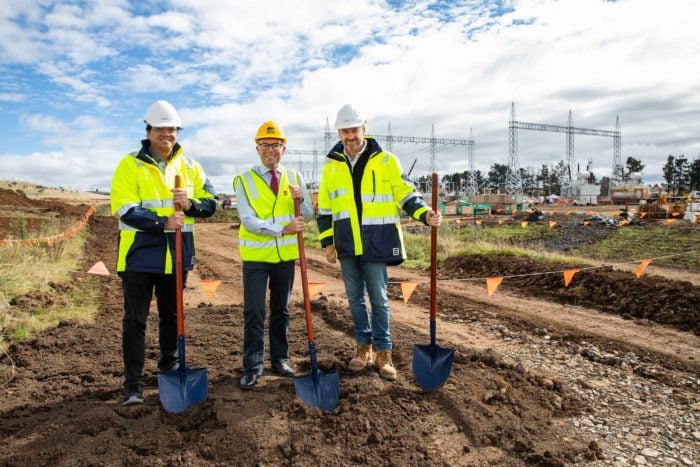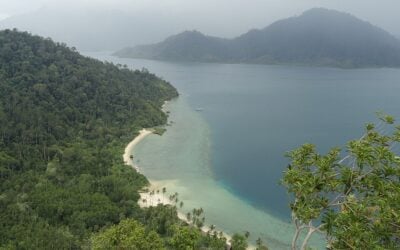
Progress is being made at one of Australia’s biggest co-located solar and energy storage projects, with the start of construction at the power plant’s 50MW battery energy storage system (BESS).
New England Solar Farm near Uralla, New South Wales (NSW), pairs the 50MW/50MWh (one-hour duration) BESS with a planned 720MW of solar PV. As reported by our sister site PV Tech, construction began in March 2021 and at the time was Australia’s largest co-located solar and storage plant to date.
Enjoy 12 months of exclusive analysis
- Regular insight and analysis of the industry’s biggest developments
- In-depth interviews with the industry’s leading figures
- Annual digital subscription to the PV Tech Power journal
- Discounts on Solar Media’s portfolio of events, in-person and virtual
It is part of a large Renewable Energy Zone (REZ) being built in the state’s New England region and received A$12.5 million (US$8.85 million) funding support from the NSW government under its Emerging Energy Program.
It was one of five Capital Projects awarded the funding, totalling 220MW and including Transgrid’s since-commissioned Wallgrove 50MW/75MWh battery project, CWP Renewables’ 30MW Sapphire Battery Facility, a hybrid battery-gas project and a 6MW virtual power plant (VPP).
From the total A$75 million set aside for the programme’s funding, so far a total of about A$47.5 million has been invested into part-funding Capital Projects, with a further A$10.1 million put into pre-investment studies for nine projects that include four large pumped hydro projects, another VPP, two standalone BESS proposals totalling 350MW and Hydrostor’s advanced compressed air energy storage (A-CAES) project at Broken Hill.
The government said that as well as creating employment and adding reliable clean energy-based supply in the region, the programme will unlock around A$366 million in private investment.
In announcing the funding for the New England Solar Farm’s battery storage in August 2020, Member of Parliament (MP) for the local Northern Tablelands constituency Adam Marshall said the power plant, along with the other developments in the REZ, would make his district a major capital for renewable energy not just in New South Wales but for all of Australia.
“The BESS will be capable of dispatching energy to the grid at times of high demand, further progressing the region’s goal of becoming a net exporter of renewable energy,” Marshall said.
Marshall was among attendees at a recent ground-breaking event to kick off construction of the BESS, which will also help support the grid with participation in balancing services.
The project has been co-developed by UPC Renewables, a developer focused on the Asia-Pacific region and ACEN, the listed energy platform of Ayala Group, the biggest conglomerate holding company in the Philippines.
However, while the pair formed a 50:50 joint venture (JV) to work on clean energy projects in Australia, trading under the name UPC/AC Renewables, ACEN took its shareholding in the JV to 80% in March.
With that, the JV had a name change to ACEN Australia, and ACEN wants to buy out the remainder of UPC’s equity by the start of 2023.
The solar PV at the site is being built in two phases, with the first 400MWac/520MWdc phase expected to be completed next year. The BESS is being sited with the capability of expanding it to 200MW/400MWh, if market conditions make that economical, ACEN Australia’s CEO Anton Rohner said.






